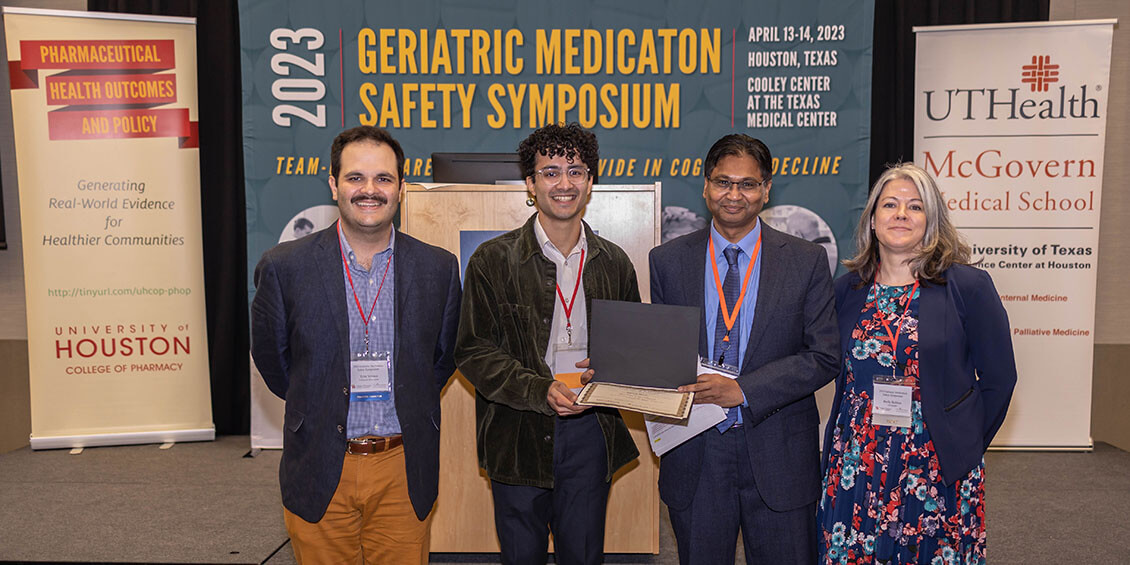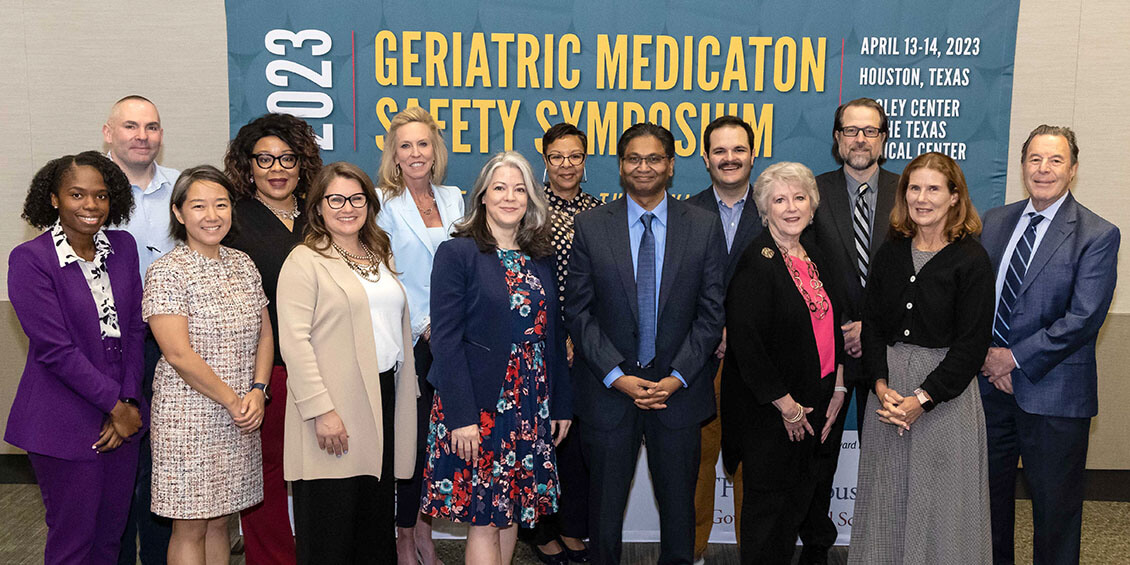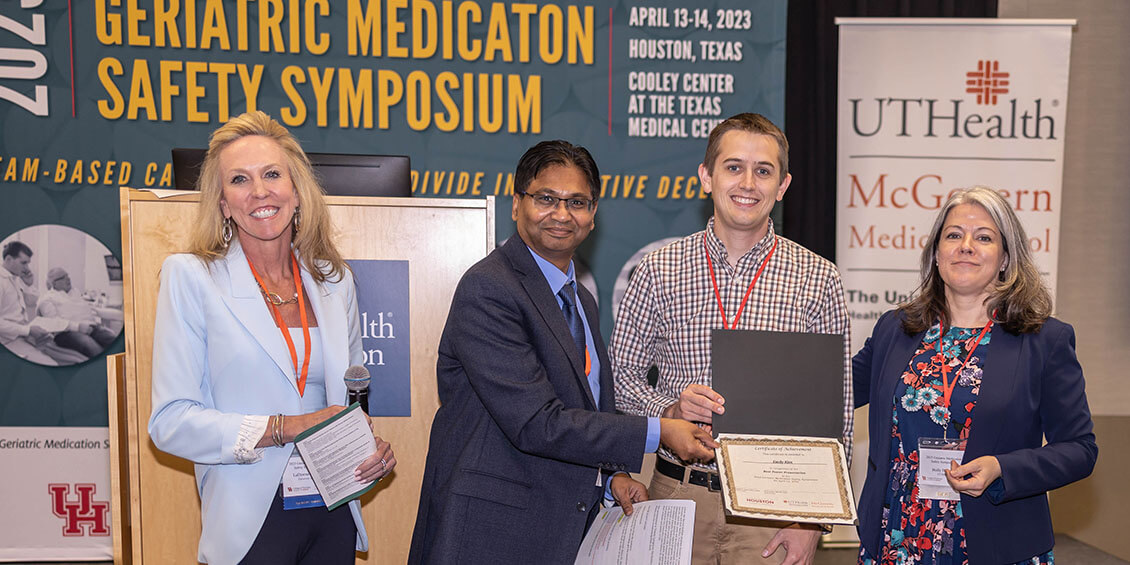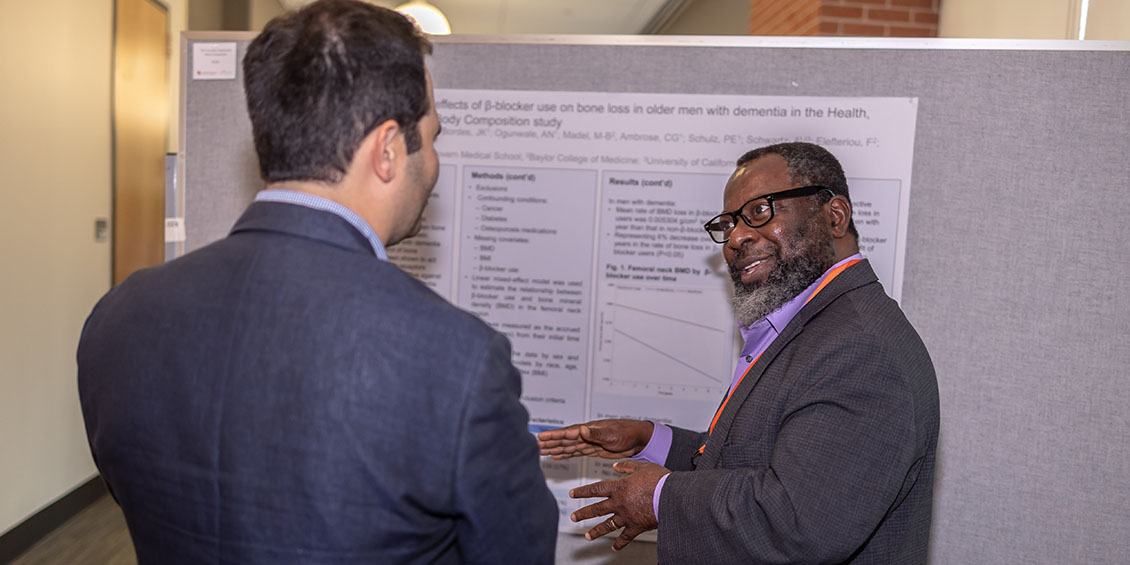Research News

Improving Drug Safety in Cognitive Decline
Geriatric Medication Safety Symposium Explores Evidence-based Best Practices
April 28 — With an emphasis on improving pharmaceutical care of patients experiencing dementia, Alzheimer's disease and other neurodegenerative disorders, more than 100 practitioners, researchers, students and post-graduate trainees shared insights into safe, effective medication use in older adults at the 2023 Geriatric Medication Safety Symposium April 13-14 in Houston's Texas Medical Center.
Supported by a five-year National Institute on Aging grant, the symposium was co-hosted by UH College of Pharmacy and McGovern Medical School at UTHealth Houston. Based on this year's theme of "Team-Based Care to Bridge the Divide in Cognitive Decline," the hybrid event featured workshops and plenary sessions from nationally recognized speakers presenting diverse perspectives in diagnosis, pharmacotherapy, behavior management, and caregiver roles.

Diverse Perspectives
Ryan M. Carnahan, Pharm.D., M.S., professor and director of graduate studies at The University of Iowa College of Public Health, discussed about pharmacotherapy alternatives and the importance of deprescribing in the use of anticholinergics, antipsychotics and anticonvulsants in older adults, as many of these medications can worsen cognition and have significant adverse effects.
Carolyn K. Clevenger, R.N., DNP, AGPCNP-BC, GNP-BC, FAANP, professor and associate dean for Transformative Clinical Practice at Emory University Nell Hodgson Woodruff School of Nursing, offered an overview of current evidence on pharmacotherapies to manage Alzheimer's disease and the changing treatment landscape with new and emerging therapeutics.
In a first for the symposium, Katie Scott, MPH, president of the Houston-based nonprofit organization CarePartners, provided insights from the perspective of the patient, including family dynamics and the complexity of caregiver roles to address the needs of patients with dementia.
Joseph W. Shega, M.D., executive vice president and chief medical officer of VITAS Healthcare, discussed pharmacotherapy choices to address restless, aggressive or disruptive symptoms in older adults in light of limited evidence and safety concerns of many of these medications.

Next-generation Researchers
The event also drew four podium and 10 poster presentations from students, residents, fellows and post-doctoral trainees from institutions across the Greater Houston area – an increase of more than 80% from the symposium's inaugural year in 2022.
The winner of the Best Podium Presentation Award was Aditya More, M.D. candidate at McGovern Medical School at UTHealth Houston, for his project, "Reduced prevalence of potentially inappropriate medications upon discharge from acute cardiac care." The presentation was co-authored by McGovern’s Min Ji Kwak, M.D., M.S., DrPH, assistant professor.
The winner of the Best Poster Presentation Award was University of Texas Medical Branch (UTMB) student Emily Kim, M.S., for her project, "Effectiveness of Pain Control Between Opioids and Gabapentinoids in Older Patients with Chronic Pain." Co-authors of the project were UTMB’s Mukaila A. Raji, M.D., geriatric medicine specialist; Jordan Westra, MPH, Clinical Science Ph.D. student; Denise Wilkes, M.D., Ph.D., assistant professor; and Yong-Fang Kuo, Ph.D., professor and department chair.

'Critical conversations'
"The challenges clinicians and the entire health care team face will become more acute with the 'graying' of our patient population nationwide, and these conversations are critical to ensuring medication safety and quality of life given the complexities associated with neurodegenerative disorders and current pharmacotherapies," said symposium co-chair Rajender R. Aparasu, Ph.D., FAPhA.
The event also drew representatives from community partners Amazing Place, CarePartners, and the Harris County Area Agency on Aging, who engaged with attendees on the roles and services in the elder care space. Practitioners in attendance also had the opportunity to earn pharmacy, medicine, nursing and dentistry continuing education credits, with risk management credits for those in the UTHealth system.
